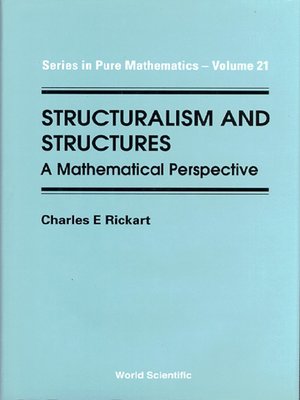
Sign up to save your library
With an OverDrive account, you can save your favorite libraries for at-a-glance information about availability. Find out more about OverDrive accounts.
Find this title in Libby, the library reading app by OverDrive.



Search for a digital library with this title
Title found at these libraries:
| Library Name | Distance |
|---|---|
| Loading... |
This book is devoted to an analysis of the way that structures must enter into a serious study of any subject, and the term “structuralism” refers to the general method of approaching a subject from the viewpoint of structure. A proper appreciation of this approach requires a deeper understanding of the concept of structure than is provided by the simple intuitive notion of structures that everyone posseses to some degree. Therefore, a large part of the discussion is devoted directly or indirectly to a study of the nature of structures themselves. A formal definition of a structure, plus some basic general properties and examples, is given early in the discussion. Also, in order to clarify the general notions and to see how they are used, the later chapters are devoted to an examination of how structures enter into some special fields, including linguistics, mental phenomena, mathematics (and its applications), and biology (especially in the theory of evolution). Because the author is a mathematician, certain mathematical ideas have influenced greatly the choice and approach to the material covered. In general, however, the mathematical influence is not on a technical level and is often only implicit. Even the chapter on mathematical structures is nontechnical and is about rather than on mathematics. Only in the last chapter and earlier in three short sections does one find any of the expected “formal” mathematics. In other words, the great bulk of the material is accessible to someone without a mathematical background.







